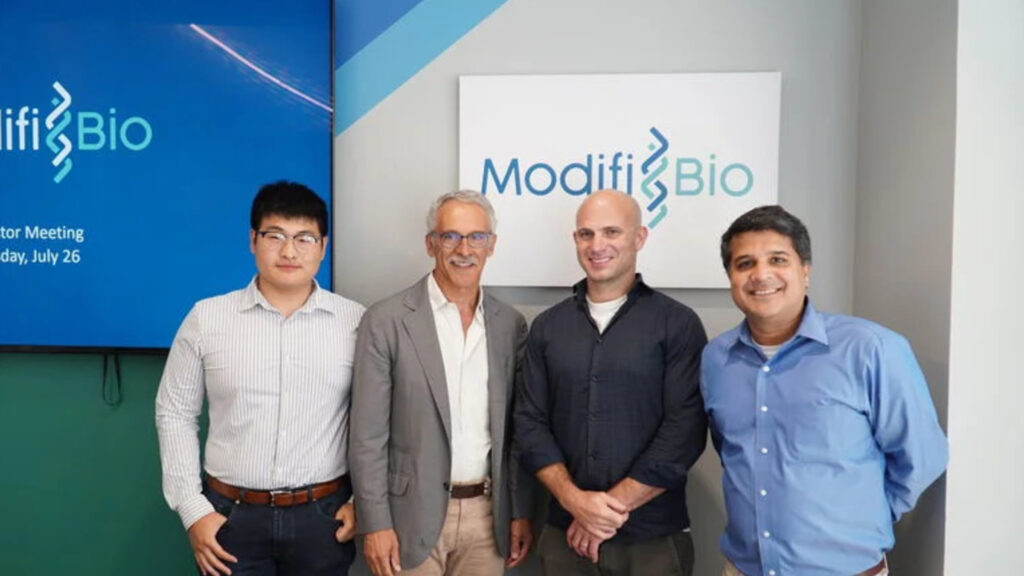Merck is acquiring a startup spun out of Yale called Modifi Bio, which has developed a suite of molecules against chemotherapy-resistant glioblastoma, a devastating and often deadly disease.
Merck will pay $30 million upfront, and the deal could be worth as much as $1.3 billion based on potential future payments.
Modifi Bio was founded in 2021 in hopes of turning the academic findings from Yale scientists into a new treatment for brain cancers. That research, published in Science when the company launched in 2022, showed that a so-called DNA modifier could essentially link two strands of DNA in a way slow enough that healthy cells could reverse any damage, but cancer cells couldn’t, leading only cancer cells to die.
Ranjit Bindra, co-director of the Yale Brain Tumor Center and Modifi Bio co-founder, said the scientists called the molecules “chameleon-like” because the DNA modifications are toxic to glioblastoma cells, but appear totally different to normal cells. “The molecules ‘look’ and behave totally different based on the molecular surroundings in the DNA,” he said.
It’s akin to precision chemotherapy. The treatment method was inspired by temozolomide, a chemotherapy that many brain cancer patients first receive. “Why is [temozolomide] the only thing that works?” said Modifi Bio co-founder Kingson Lin, who completed his MD/PhD at Yale and is now doing his residency at the Harvard Radiation Oncology Program. He said that many researchers in the past had attempted to make analogues of temozolomide, but that research didn’t really lead anywhere.
The Yale team studied how temozolomide worked in certain glioblastoma cells that are what’s called MGMT-deficient and set out to design molecules that could likewise link DNA in a lethal fashion but overcome resistance from the tumor.
The company had raised $10.7 million in seed funding. In seeking a Series A, the startup founders not only faced a frigid biotech market, but also the challenge of pitching a treatment for glioblastoma, a less common cancer that doesn’t command huge returns, Bindra said.
He noted that some investors they spoke to had been more interested in the applications of the company’s platform outside of CNS indications, but Modifi was determined to develop the drug for the cancer they set out to treat. And that’s where Merck came in to buy the company in a deal that closed last Tuesday.
Modifi has selected a development candidate dubbed MOD-246, which Bindra said has been optimized compared to the initial compound that the group published in their Science paper. Merck is acquiring that compound as well as its related analogues.

